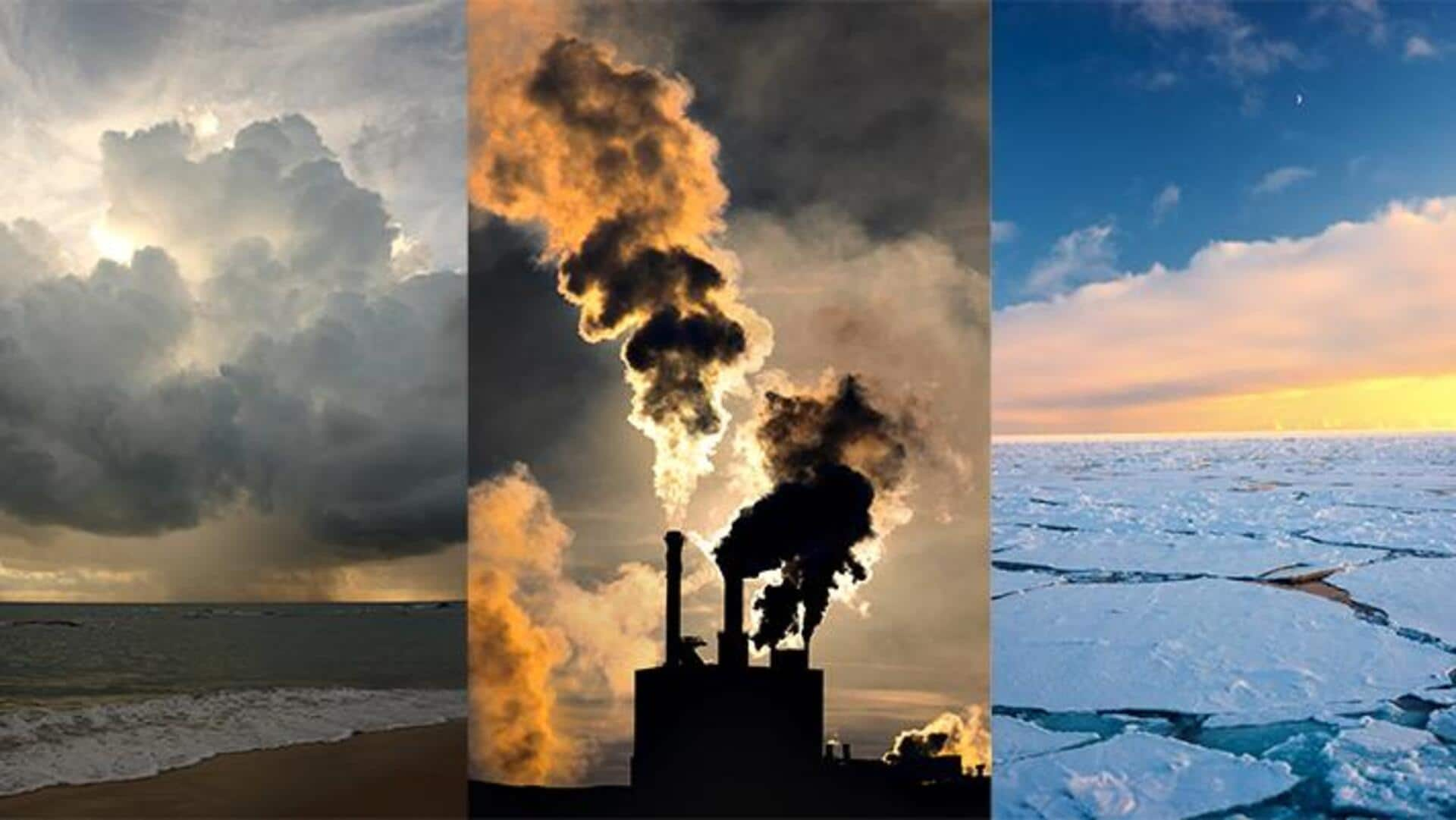
Global warming by 4°C could make world 40% poorer: Study
What's the story
A recent study by Australian researchers has found that global warming could affect wealth much more than we thought.
The research found that if global temperatures rise by 4°C, the average person could be 40% poorer. The new figure is nearly four times higher than some previous predictions.
The study, led by Dr. Timothy Neal from the University of New South Wales's Institute for Climate Risk and Response, was published in Environmental Research Letters.
Economic impact
Even a 2°C rise could reduce global GDP by 16%
The study also found that even a temperature increase of just 2°C above pre-industrial levels could cut the average per-person GDP worldwide by 16%.
That's much more than previous estimates, which suggested a reduction of only 1.4%.
Current projections indicate that global temperatures are likely to rise by at least 2.1°C, even if nations meet their short-term and long-term climate goals.
Model flaws
Current economic models underestimate climate change risks
Integrated assessment models (IAMs), which are used to guide government investments in reducing greenhouse gas emissions, have been criticized for failing to accurately capture the risks posed by climate change.
These include extreme weather events and their potential impact on global supply chains.
The new research built upon one of these popular economic models by factoring in climate change forecasts and extreme weather events' impact on global supply chains.
Supply chain risks
Climate change could disrupt global supply chains
Dr. Neal stressed that earlier economic models failed to account for how extreme weather events affect global supply chains.
He said, "In a hotter future, we can expect cascading supply chain disruptions triggered by extreme weather events worldwide."
This makes it imperative for economic models to consider these factors to accurately gauge how climate change could affect global economies.
Regional impact
Some regions might benefit from global warming
Some economists argue that global losses from climate change could be offset by potential benefits in colder regions like Canada, northern Europe, and Russia.
However, Dr. Neal disagrees and asserts that global warming will affect all countries due to interconnected economies through trade.
This perspective challenges the notion of regional benefits from climate change and underscores its universal impact on wealth distribution worldwide.
Model limitations
Existing models underestimate climate change's economic impact
Prof. Frank Jotzo, a climate policy expert at Australian National University, who was not involved in the research, criticized IAMs for assuming that if climate change made an activity like agriculture unviable in one part of the world, increased output would come from elsewhere.
He said that this assumption contradicts what physical impact science and a nuanced understanding of interdependencies in the economy would suggest.
Urgent action
New research underscores urgent need for climate action
Mark Lawrence, a climate risk researcher at the University of Adelaide, and a former financial risk manager, found the results of this new study credible.
He suggested that the economic impacts of climate change could be even worse than reported.
Lawrence also stated that "the potential economic benefits of urgent climate policy action have also been significantly understated," highlighting an urgent need for immediate action against global warming.